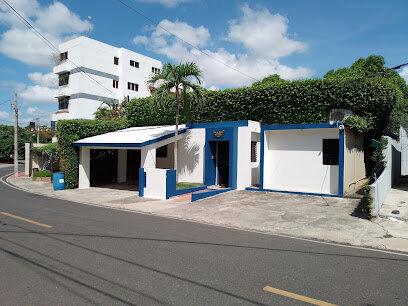Best Hiring & Firing Lawyers in Santiago de los Caballeros
Share your needs with us, get contacted by law firms.
Free. Takes 2 min.
List of the best lawyers in Santiago de los Caballeros, Dominican Republic
About Hiring & Firing Law in Santiago de los Caballeros, Dominican Republic
Hiring and firing practices in Santiago de los Caballeros, Dominican Republic, are governed primarily by the Dominican Labor Code (Código de Trabajo). This legal framework establishes the rights and obligations of both employers and employees throughout the employment relationship, including the start and end of employment. The process encompasses job contracts, duties, workplace rights, grounds for dismissal, severance pay, and dispute resolution. Understanding these laws is critical for both employers and employees to ensure compliance and protect their interests.
Why You May Need a Lawyer
Legal assistance is often crucial in situations involving hiring and firing due to the complexity of labor regulations and the potential consequences of missteps. Common scenarios where a lawyer can provide valuable support include:
- Reviewing or drafting employment contracts to ensure legal compliance
- Facing wrongful termination or unfair dismissal claims
- Calculating and negotiating severance pay and other legal entitlements
- Addressing workplace discrimination, harassment, or labor rights violations
- Guiding employers through procedures for disciplinary action or collective dismissals
- Assisting in labor disputes or mediation proceedings
- Advising on lawful recruitment practices and background checks
Having knowledgeable legal counsel helps avoid costly litigation, protects your rights, and ensures the hiring or termination process is carried out according to Dominican law.
Local Laws Overview
The Dominican Labor Code sets the legal standards for hiring and firing nationally, including in Santiago de los Caballeros. Below are key aspects relevant to individuals and businesses:
- Employment Contracts: Must be in writing and specify key terms such as salary, position, and duration. An oral contract is also valid but less secure in disputes.
- Probation Period: Typically lasts up to three months. During this time, termination is easier but must still follow legal requirements.
- Grounds for Dismissal: Employees may be terminated with just cause (e.g., serious misconduct) or without cause. Each has its own rules regarding compensation and notice.
- Notice Periods: Employers must generally provide advance notice or pay in lieu, depending on the length of service.
- Severance Pay: Also known as “prestaciones laborales,” employees let go without just cause are entitled to severance based on their years of service.
- Termination Documentation: Dismissals must be documented through proper notices, and in some cases, reported to the regional Ministry of Labor office.
- Employee Rights: There are protections against termination based on discrimination, pregnancy, union activities, and certain forms of leave.
- Dispute Resolution: Labor courts and the Ministry of Labor handle employment disputes, offering mediation and adjudication services.
Frequently Asked Questions
What is required to legally hire an employee in Santiago de los Caballeros?
Employers must create a written or oral employment contract, register employees with the Social Security system, and comply with Dominican labor regulations regarding pay, benefits, and workplace safety.
Do employment contracts have to be in writing?
No, but written contracts are strongly recommended as they provide clear evidence of the agreed terms and conditions, making it easier to resolve disputes.
What constitutes wrongful termination?
Wrongful termination occurs when an employee is dismissed for reasons not recognized by law, such as discrimination, retaliation, or without observing due process and compensation requirements.
How is severance pay calculated?
Severance pay is based on the employee’s years of continuous service and current salary. The Dominican Labor Code provides specific formulas for this calculation, increasing with tenure.
What are the notice requirements for termination?
Notice periods vary by length of service: 7 days for up to 6 months, 14 days for 6 to 12 months, and 28 days for more than 1 year. Employers can pay in lieu of notice.
Can an employer dismiss employees without cause?
Yes, but they must pay all accrued benefits and severance amounts as set by law. Failure to do so can lead to legal claims.
Are employees protected from dismissal under any circumstances?
Yes, employees on pregnancy or maternity leave, those engaged in union activities, or elderly employees under certain conditions are protected from dismissal.
How are labor disputes typically resolved?
Disputes can be settled through direct negotiations, mediation by the Ministry of Labor, or, if unresolved, through the Dominican labor courts (Juzgados de Trabajo).
What should employers beware of during the hiring process?
Employers should avoid discriminatory practices based on gender, race, age, religion, or disability and must comply with minimum wage laws and contract requirements.
How can I file a complaint about wrongful dismissal?
Complaints can be lodged with the nearest Ministry of Labor office or directly submitted to a labor court. Seeking legal advice before proceeding is strongly recommended.
Additional Resources
Several organizations and government offices offer support for hiring and firing matters in Santiago de los Caballeros:
- Ministry of Labor (Ministerio de Trabajo) - Regional offices provide information, mediation, and handling of labor complaints
- Labor Courts (Juzgados de Trabajo) - Jurisdictions dedicated to resolving employment disputes
- Social Security Institute (TSS) - Manages employee registration and social security compliance
- Local Bar Associations - Offer directories of labor law attorneys
- Workers Unions - Provide support and advocacy for employee rights
Next Steps
If you need legal assistance with hiring or firing issues in Santiago de los Caballeros:
- Document all employment interactions and collect contracts, notices, and communications
- Contact a qualified labor lawyer familiar with Dominican labor law for a consultation
- Visit your local Ministry of Labor office for guidance or mediation services
- If a dispute arises, follow recommended procedures for negotiation or mediation before legal action
- Keep records of all steps taken and communications exchanged throughout the process
Taking timely, informed action and consulting with experienced legal professionals will help you navigate the complexities of hiring and firing in the Dominican Republic effectively.
Lawzana helps you find the best lawyers and law firms in Santiago de los Caballeros through a curated and pre-screened list of qualified legal professionals. Our platform offers rankings and detailed profiles of attorneys and law firms, allowing you to compare based on practice areas, including Hiring & Firing, experience, and client feedback.
Each profile includes a description of the firm's areas of practice, client reviews, team members and partners, year of establishment, spoken languages, office locations, contact information, social media presence, and any published articles or resources. Most firms on our platform speak English and are experienced in both local and international legal matters.
Get a quote from top-rated law firms in Santiago de los Caballeros, Dominican Republic — quickly, securely, and without unnecessary hassle.
Disclaimer:
The information provided on this page is for general informational purposes only and does not constitute legal advice. While we strive to ensure the accuracy and relevance of the content, legal information may change over time, and interpretations of the law can vary. You should always consult with a qualified legal professional for advice specific to your situation.
We disclaim all liability for actions taken or not taken based on the content of this page. If you believe any information is incorrect or outdated, please contact us, and we will review and update it where appropriate.












